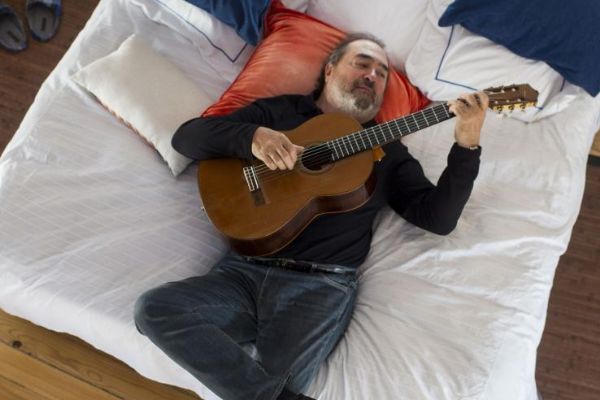- Patxi Andión dies.The singer and actor dies in Soria when the Land Rover he was driving off the track
Patxi Andión was a different singer-songwriter. It was, to begin with, rude, not melancholic or whining. His voice, rough, supposed in itself, in its rough timbre, an unbearable accusation, an aggressive claim. A protest (a noun-adjective to which the singer-songwriters of that time) ascribed directly. A hammering more than a pit .
Patxi was an intellectual. But, so to speak, his music could be working . One could imagine it sung, by him or by others, conscientious people, in a workshop rather than in a classroom. Patxi's voice was a weapon, not an instrument . He knew how to use it. Even, according to what songs or stanzas, he forced it to accentuate its effect and wrap in sandpaper , not silk, not even corduroy, his message.
That voice scratched inside who listened to it. And it is the first thing that comes to mind when thinking about its owner. That voice was the right vehicle, suitable, to convey their thoughts, their feelings, their arguments. He probably would not have succeeded without her, despite the objective quality of many of his songs; It is logical to think that he was called to condition his melodies and, above all, his texts. Even the most intimate required their cracked color to acquire their maximum expression.
If Patxi had been a lyricist, she would have competed at an initial disadvantage with people like Serrat or Aute , of greater literary depth and more classical vocal caliber. But his voice full of edges although wisely modulated and his combative verses differentiated him, year up, year down, from his companions of generation and current.
Patxi's voice appealed to you and bothered you. You would suffer while enjoying Joan Manuel and Luis Eduardo. Even that of Victor Manuel, the closest to Patxi in his naturalness without tame . Like the Spaniard, Patxi, born in Madrid, but Basque of ancestry, character and vocation , was also a manners. But of a non-bucolic or regionalist custom.
In Una, dos y tres , his greatest success (1973-74) was the Madrid costumbrismo of alluvium of the motley, heterogeneous, rogue, trapisondista, castizo, truhanesco, tourist Rastro, in whose vicinity he lived and composed, among other songs, Samaritan , We would have to know , Father and They will pass us the bill . Shoot human costumbrismo in El maestro , La Jacinta (a prostitute) or Rogelio (partner of poverty and bohemia to whom money makes renege on his past and his friends). Animal costumbrismo in Pipo (a stray dog).
He, who embarked for a while on a cod, wrote With the whole sea behind . Twenty-one, he had lived the Parisian bohemia and May 68 , with all its double artistic and social influence. He always had problems with censorship and some of the songs on his albums were labeled "non-radiable."
In 1972, within the LP Word by word , he published 33 verses to my death . In them he said: "I want to die slowly, I want to die sailing". But, what irony, has died suddenly and on the mainland.
According to the criteria of The Trust Project
Know more- music
- culture
THE NOISE OF THE STREET Patxi, the trail without playing
MomenTVS El Hormiguero: And Dani Martín ended up crying
Visions remotes don't em faran hate

